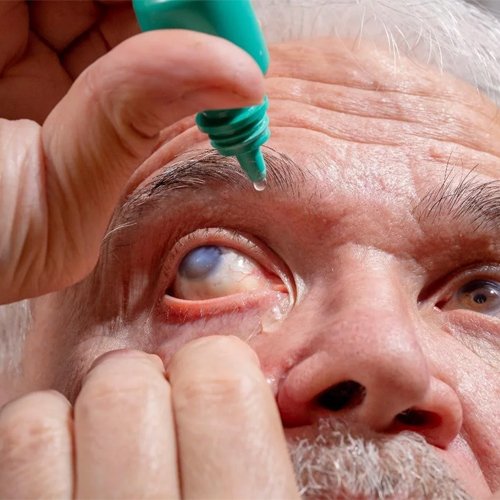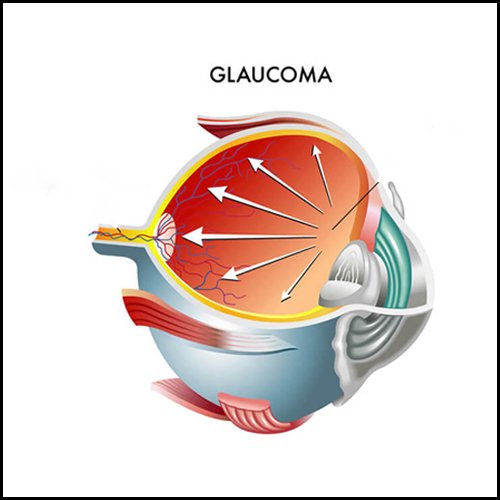Glaucoma
What is glaucoma caused by?
Glaucoma is a group of eye conditions that damage the optic nerve, which is vital for good vision. This damage is often caused by abnormally high pressure in your eye, a condition known as intraocular pressure (IOP). The optic nerve, which transmits visual information from the eye to the brain, becomes compromised, leading to progressive vision loss.
The precise cause of this increased intraocular pressure is often linked to the fluid (aqueous humor) that flows through the eye. Normally, this fluid drains out through a mesh-like channel. However, if this channel becomes blocked or the eye produces too much fluid, the fluid accumulates, increasing eye pressure and thus damaging the optic nerve. This can happen due to various factors including age, genetics, and certain medical conditions.
Primary open-angle glaucoma, the most common form, occurs when the drainage canals gradually become clogged over time. This is typically painless and does not cause vision changes initially, which is why it is often dubbed the "silent thief of sight.

Angle-closure glaucoma, on the other hand, happens when the iris is very close to the drainage angle in the eye, blocking it and causing a sudden rise in intraocular pressure. This form of glaucoma can be a medical emergency.
Other factors contributing to the development of glaucoma include a family history of the disease, being over the age of 60, having certain medical conditions such as diabetes, heart disease, high blood pressure, and being of African, Asian, or Hispanic descent. Eye injuries, severe nearsightedness or farsightedness, and prolonged use of corticosteroid medications can also increase the risk of developing glaucoma.
glaucoma is primarily caused by increased intraocular pressure, which damages the optic nerve, and it is influenced by a combination of genetic and environmental factors. Early detection and treatment are crucial to prevent significant vision loss.

We are here to help you.
Book An Appointment
I need to schedule an appointment with the eye specialist for a comprehensive eye examination. Please confirm the earliest available slot. Thank you.
Call Now
Please call now to book an appointment with the eye specialist at your earliest convenience. I require a consultation soon. Thank you.

Whatsapp Now
Feel free to send a WhatsApp message now to arrange an appointment with the eye specialist. Urgency is appreciated. Thank you.
What age can glaucoma start?
Glaucoma is a group of eye conditions that damage the optic nerve, often associated with elevated intraocular pressure. This damage can lead to vision loss or blindness if left untreated. While glaucoma is more common in older adults, it can start at any age, depending on the type and underlying causes of the disease.
Primary open-angle glaucoma, the most common form, typically develops gradually and is more prevalent in individuals over the age of 40. The risk increases with age, and it is particularly significant for those over 60. However, it's crucial to note that primary open-angle glaucoma can occur earlier, especially in individuals with a family history of the condition. Genetics play a significant role, and those with a parent or sibling with glaucoma are at higher risk.
Angle-closure glaucoma, another form, can occur suddenly and is more common in certain populations, such as Asians and hyperopic individuals. This type can develop at any age but is also more frequently diagnosed in older adults. Normal-tension glaucoma, where optic nerve damage occurs

despite normal eye pressure, can affect adults at various ages. The exact causes are not well understood, but factors such as reduced blood flow to the optic nerve are believed to contribute.
Pediatric glaucoma, although rare, demonstrates that glaucoma can indeed start at a very young age. Congenital glaucoma is present at birth and results from abnormal development of the eye's drainage system. Infantile glaucoma presents within the first year of life, while juvenile open-angle glaucoma appears in older children and adolescents. These conditions are often hereditary and require early detection and treatment to prevent severe vision impairment.
Secondary glaucoma can develop at any age due to other medical conditions or eye injuries. Factors like inflammation, eye trauma, diabetes, and prolonged use of corticosteroids can lead to secondary glaucoma, illustrating that the onset is not strictly age-dependent.
while glaucoma is commonly associated with aging, it can start at any age. The type of glaucoma, genetic predispositions, and underlying health conditions significantly influence the onset. Regular eye exams are crucial for early detection and management, especially for individuals at higher risk due to family history or other predisposing factors. Early intervention can slow the progression of glaucoma and preserve vision.
